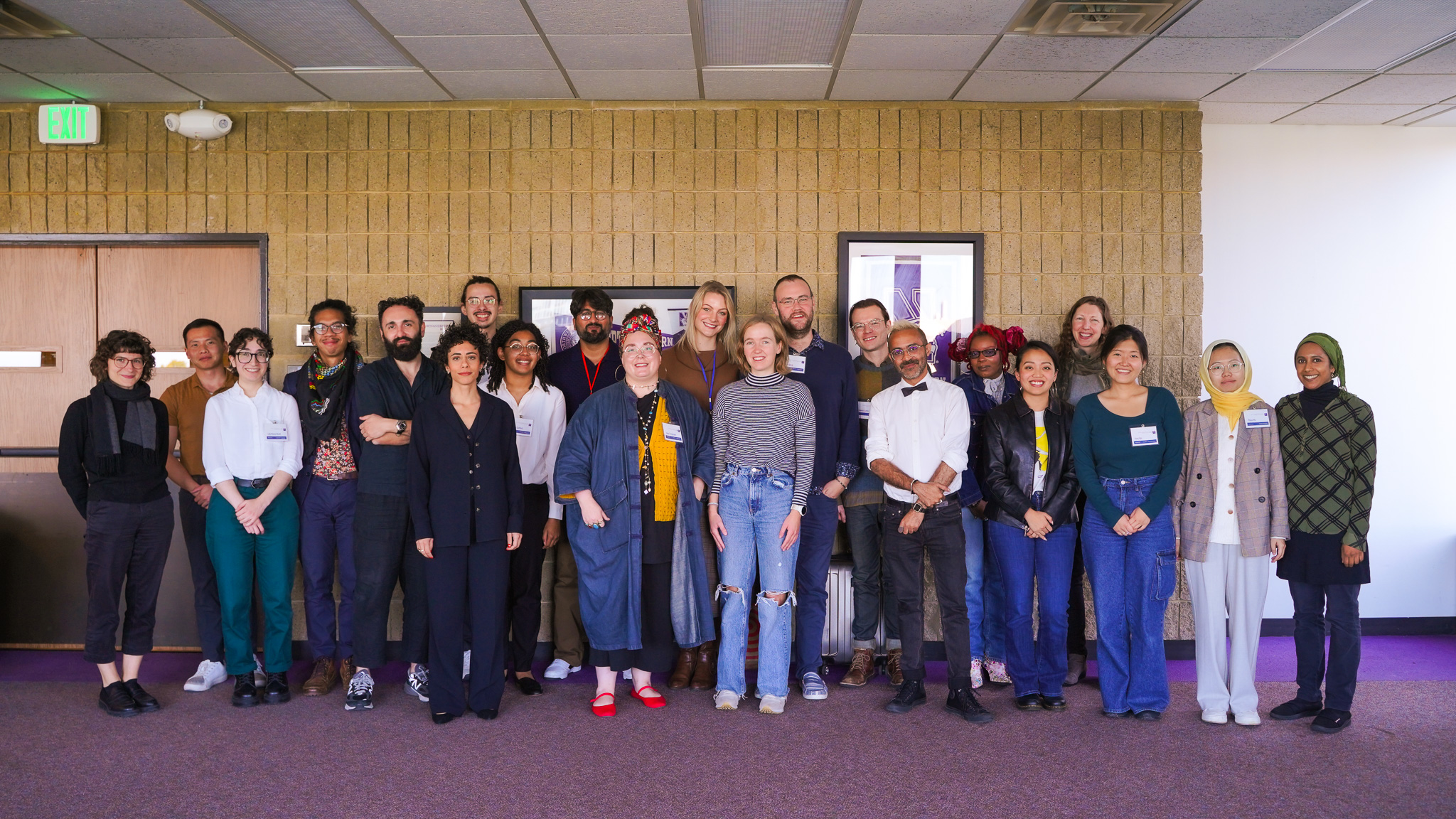Graduate Student Fall Conference Recap
October 30, 2024
Desire and Intimacy in the Study of Religion

Our 2024 Graduate Student Conference was held on October 25-27 in the Norris Univeristy Center. Thank you to everyone who attended and participated in our conference on Desire and Intimacy in the Study of Religion!
The Religious Studies Department extends our gratitude to our conference co-chairs Izzak Novak, Juliana Sexauer, Grace Christensen and Ray Buckner for their hard work organizing this event. We also thank our keynote speakers, Mona Oraby, associate professor of political science at Howard University, and Omar Kasmani, guest professor at Freie Universität Berlin, for enriching our conference with their insights this year.
We are thrilled to be able to share some photos featuring panelists, moderators and attendees at our event! But first, here are some words from conference co-chairs Izzak Novak and Juliana Sexauer:
The 2024 Northwestern Religious Studies Graduate Student Conference on Desire and Intimacy in the Study of Religion was a tremendous success. This was the first graduate student conference since before the COVID-19 pandemic, and brought scholars from Stanford, Harvard, Columbia, Vienna, Berlin, and more. Throughout our five panels, presenters explored on intimacies of land, reading intimacies, digital and media intimacies, sensorial intimacies, and scholarly intimacies. We hosted two keynote speakers, Mona Oraby (Howard University) and Omar Kasmani (Freie Universität Berlin), who engaged us in conversations of method, source material, theory, ethnography, and companionship. It was a weekend of rich thinking and sharing, a unique opportunity to share works in progress and receive constructive and generative feedback from peers and mentors alike — brought together across fields (sociology, history, literary studies, religious studies) for an interdisciplinary approach to the study of religion.
The graduate students were grateful to be able to network with other emerging scholars, and several of us were able to connect with scholars whose work could speak to our own and vice versa. In one discussion on the second day, we remarked that this conference gave us an opportunity to hear cutting edge scholarship that could help us in developing our projects, writing, and research methods, scholarship that in many ways was more exciting than that we had encountered at “traditional” conferences. Importantly, we graduate students gained useful experience in organizing a conference, professional development we would not have otherwise gotten. Overall, we are infinitely grateful for the support of the Boyd Family in making the conference possible. Having graduate student-centered initiatives is so important to our personal, professional, and scholarly development, and we are grateful for all of those who helped us make this possible.
